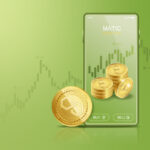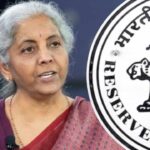People regularly hear about the forex exchange market (Forex, FX, or currency market). It is the process of changing one currency into another for various reasons, usually for commerce, trading, or tourism.
According to a report prepared by Bank for International Settlements (BIS), the daily trading volume for forex reached $6.6 trillion in 2019.
Do you like to read about forex, you can read about the Markets Bank review.
Headquartered in Basel, Switzerland, the BIS is a bank for central banks. Founded in 1930, it is the oldest global financial institution and operates under the auspices of international law. However, from its inception to the present day, the role of the BIS has been ever-changing as the BIS adapts to the dynamic global financial community and its needs.
It was created out of the Hague Agreements of 1930 and took over the job of the Agent General for Repatriation in Berlin. When established, the Bank for International Settlements was responsible for the collection, administration as well as distribution of reparations from Germany—as agreed upon in the Treaty of Versailles—following World War I. It was also the trustee for Dawes and Young Loans, which were internationally-issued loans used to finance these repatriations.
However, trading currencies can be quite risky as well as complex. Because there are large trade flows within the system, it is not an easy task for rogue traders to influence the price of a currency. Hopefully, this system helps create transparency in the market for investors with access to interbank dealing.
Retail investors should learn as much as possible about forex brokers and the forex market in general. It also makes sense to find out what kind of account protections are available if something goes wrong.
The history of the forex exchange market
The forex market is not a new invention. People have always exchanged or bartered goods as well as currencies to purchase goods and services. Nevertheless, the forex market, as we know it today, is a comparatively modern invention.
After the Bretton Woods system began to collapse more than 50 years ago, more currencies were allowed to float freely against one another.
As a result, the values of individual currencies vary based on demand and circulation and are monitored by foreign exchange trading services.
Some people might be unaware that commercial and investment banks conduct most of the trading in forex markets on behalf of their clients. However, there are also speculative opportunities for trading one currency against another for professional as well as individual investors.
There are two clear-cut features of currencies as an asset class:
You have the opportunity to earn the interest rate differential between two currencies.
Besides, you can profit from changes in the exchange rate.
For example, an investor can make a profit from the difference between two interest rates in two different countries by buying the currency with the higher interest rate and shorting the currency with the lower interest rate.
Before the financial crisis that occurred in 2008, it was widespread to short the Japanese currency and buy British currency because the interest rate differential was quite significant.





 BTC-USD
BTC-USD  ETH-USD
ETH-USD  LTC-USD
LTC-USD  XRP-USD
XRP-USD